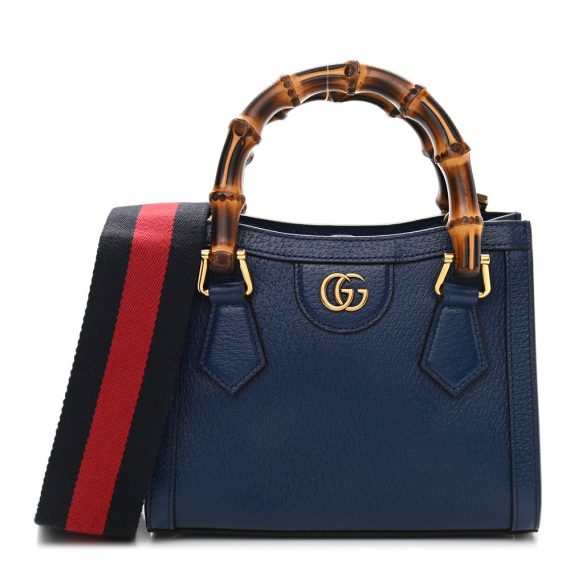Brand Manipulation: How Luxury Labels Exploit Insecurities
In the intricate tapestry of consumer culture, luxury brands have woven a powerful thread – one that often seems to be tied to our most profound insecurities. The allure of opulence and exclusivity, peddled through balenciagas replica glossy advertisements and high-profile influencers, can leave even the most rational consumers questioning their own worth. But what are the psychological mechanisms behind this manipulation? How does it affect the marketplace and, more importantly, our everyday lives?
The Psychology of Luxury Branding
Status Symbols and the Pursuit of Social Identity
Luxury https://beroma.is/wp-content/uploads/2024/01/Gucci-GG-Marmont-Matelasse-Crossbody-Bag_168333_back_0_parent_1800x1800-1-1.jpg branding is not just about products; it’s about the lifestyle and social class they represent. Conspicuous consumption—buying goods to display wealth and garner status—has been a hallmark of luxury marketing for decades. Expensive watches, handbags, and shoes become not just accessories but signals of social identity. Buying a luxury item isn’t merely an economic transaction; it’s a bid for social acceptance and identity reinforcement.
The Creation of Aspirational Lifestyles
Through meticulous marketing, luxury brands create a world that consumers aspire to be a part of. Advertisements depict an idealized life that is often unattainable for the average person – jet-setting to exotic locations, exclusive evening galas, and rubbing shoulders with the elite. This aspirational association links the goods with our deepest desires, leading us to believe that by purchasing these items, we can inch closer to the life we covet.
Marketing Strategies: A Closer Look
The Art of Seduction: Advertising and Storytelling
The emotional hook of luxury advertising is a carefully crafted story. Brands use narratives that tap into universal desires, such as love, beauty, and success. Each campaign weaves a story, not only around the product but also about the kind of person who uses it. This storytelling is a potent tool for brands to emotionally connect with consumers and, subsequently, manipulate their desires.
The Exclusivity Illusion: Pricing and Place
Beyond the product itself, luxury labels master the art of illusion—especially when it comes to price and placement. By setting sky-high price points, they create a psychological barrier that suggests higher quality and desirability. Limited distribution channels and ‘invitation-only’ sales further cement the idea of exclusivity. The consumer seeking affirmation or status is led to believe that the more inaccessible a product, the more valuable and prestigious it must be.
The Role of the Glitterati: Celebrities and Influencers
In a celebrity-obsessed culture, luxury brands leverage the power of influencers and public figures. When a star is seen donning or using a luxury item, it’s as if they are giving the personal stamp of approval. This endorsement, albeit monetized, has a significant impact on the consumer. It fuels the aspirational nature of luxury goods, reinforcing the belief that purchasing them can edge one closer to the lifestyle of the rich and famous.
The Consumer Perspective
The Cultivation of Insecurities
Luxury brands play a role in creating insecurities or magnifying existing ones. Advertisements often feature models and influencers with perfect appearances, associating these unattainable beauty standards with their products. The underlying message is clear – to be worthy of luxury, one must strive for an ideal that is often superficial and unattainable, leading to a sense of inadequacy in many consumers.
The Financial and Emotional Toll
The pursuit of luxury can also take a hefty financial toll. Consumers may overextend themselves financially to acquire luxury goods, impacting their long-term financial well-being. On an emotional level, the quest for more expensive items to fill a perceived void or boost self-esteem can be an endless cycle. The temporary highs of a luxury purchase might be fleeting, leading to a dependency on material possessions for a sense of well-being.
Counteracting Brand Manipulation
Cultivate Self-Awareness and Consumer Education
The first step in counteracting brand manipulation is awareness. Consumers must educate themselves about the marketing strategies at play and understand the motivations behind their purchasing decisions. Recognizing the emotional drivers and societal pressures that influence buying habits can help individuals make more informed and empowered choices.
The Rise of Ethical and Sustainable Alternatives
An increasing number of consumers are turning to ethical and sustainable brands that offer a different kind of luxury—one that’s rooted in social and environmental responsibility. These brands often provide transparency about their production methods, offer higher quality, and promote values that resonate with the consumers’ sense of identity in a less exploitative manner.
Conclusion
Brand manipulation by luxury labels is a multifaceted issue that touches upon the very essence of consumerism and self-worth. While it is unlikely that the allure of luxury will fade away completely, there are steps we can take as consumers to reclaim control over our purchasing decisions. By understanding the psychology of luxury branding, staying informed, and supporting brands that align with our values, we can pave the way for a more conscious and just marketplace.
In the face of this powerful marketing juggernaut, consumer education and empowerment are our most potent weapons. By making deliberate, thoughtful choices, we can shape a future where our purchases reflect our values, not our insecurities. The conversation around brand manipulation is far from over, and your voice matters. What actions will you take to redefine the role of luxury in your life and in society? Remember, the power to shape this narrative lies within each and every one of us.